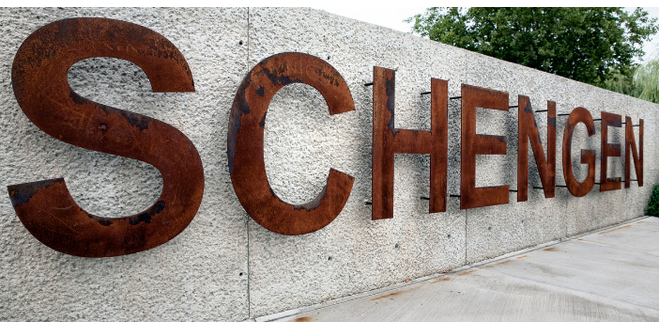
The European Commission introduced its reforms to protect the Schengen area
Drawing lessons from the pandemic and migration crisis, the European Executive presented its proposals on Tuesday 14 December to preserve freedom of movement in the European Union. The announcement comes on the heels of Emmanuel Macron’s presentation of the priorities for the upcoming French Presidency of the European Union (PFUE), among which this reform occupies a prominent place. On December 9, the head of state announced that he wanted to make this “Schengen reform one of his priorities.
And so the European executive made “a whole series of proposals to try to strengthen and, in some way,” reform the “Schengen area.” This area came into force in March 1995, “comprising the 22 countries of the European Union and four third countries totaling 420 million Europeans”. About 3.5 million Europeans cross the borders of a member state on a daily basis.
However, freedom of movement, the European “jewel in the crown” in the words of Commissioner Margaritis Schinas, has been seriously abused since 2015.
For her, “the proposed changes are intended to promote a coordinated response to common threats.” The main objective? “Ensuring that internal border controls remain a measure of last resort and [d’aider] Member states should manage cases of exploitation of migratory flows.”
The Commission would like to retain “the possibility of unilateral re-imposition of controls on the internal borders of the European Union”, but by strengthening its framework. Thus, “for unforeseen threats: it will be possible for a period of 30 days, extendable to three months. For forecast events, the renewal periods can last six months.”
Except in exceptional circumstances, the total duration of the examination shall not exceed two years.
Another aspect of the reform concerns the issue of immigration. It thus opens the way for the transfer of an “immigrant in an irregular situation to the neighboring Member State through which he arrived, rather than having to return him to his country of origin as is currently the case”. The reform would also establish a “political orientation for the Schengen area, with the establishment of regular ‘Schengen forums'”.
The Commission’s proposals will now be discussed by the European Parliament and the Council. But the negotiations will be difficult. The first debate will take place during the first European Council on 16 and 17 December.
Remember: any amendment to the Schengen provisions requires a qualified majority vote (15 of the 27 states representing at least 65% of the population).

“Organizer. Social media geek. General communicator. Bacon scholar. Proud pop culture trailblazer.”
